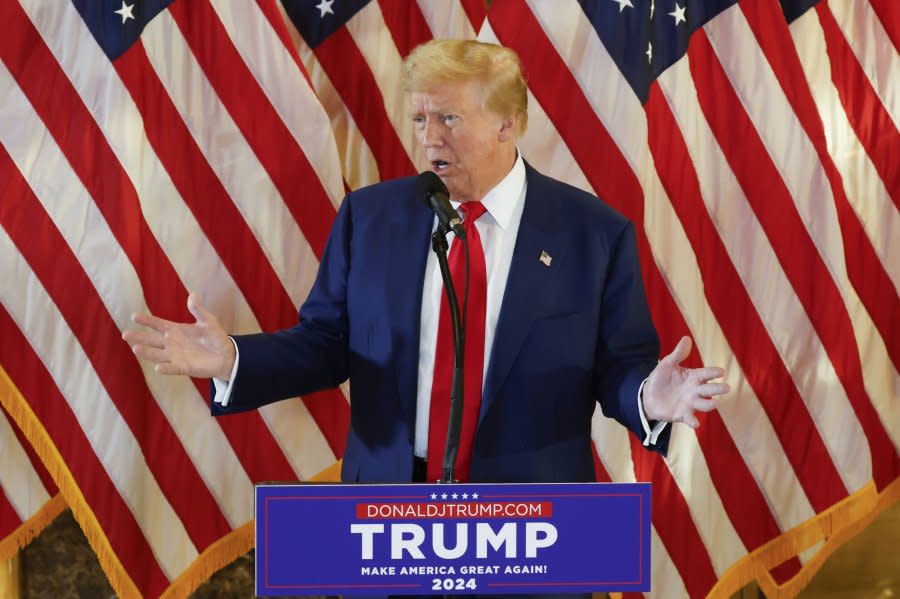Judge in Trump hush money trial flags post claiming to preview guilty verdict

June 8 (UPI) -- The Judge overseeing Donald Trump's New York hush money trial on Friday alerted attorneys about a social media post claiming to know the jury's verdict before it was reached.
Judge Juan Merchan in a letter to Trump's attorneys and Manhattan prosecutors wrote that the court discovered a comment on the New York State Unified Court Systems' public Facebook page from a user claiming to be related to one of the jurors.
"My cousin is a juror and said Trump is getting convicted," the post read, according to the letter. "Thank you folks for all your hard work!!!!"
Merchan wrote that the now week-old comment was posted in response to a routine UCS notice posted on May 29 about oral arguments unrelated to the Trump case.
The validity of the post is unclear, as the identity of the juror mentioned in it was not disclosed. The comment has since been deleted.
Merchan informed both parties in the case out of caution but did not ask them to take further action.
Trump was convicted last month on 34 counts of falsifying business records related to hush money payments made to conceal an alleged affair with adult film actress Stormy Daniels during his 2016 presidential run. His sentencing is scheduled for July 11.
Under New York law, if Trump's team can prove that the post was indicative of jury misconduct, and that such misconduct "may have affected a substantial right of the defendant," they can move to set aside his verdict and demand a retrial.
A spokesperson for the Trump campaign told NBC News, "we're investigating," in response to Merchan's letter.
Elie Honig, a CNN senior legal analyst and former state and federal prosecutor, said Merchan was being "extra careful" to inform the parties of any potential misconduct, but the comment itself does not have an immediate impact on the case.
"First the judge would have to ascertain whether this is even true, and then if it is, whether there is any necessary legal remedy," Honig said.

